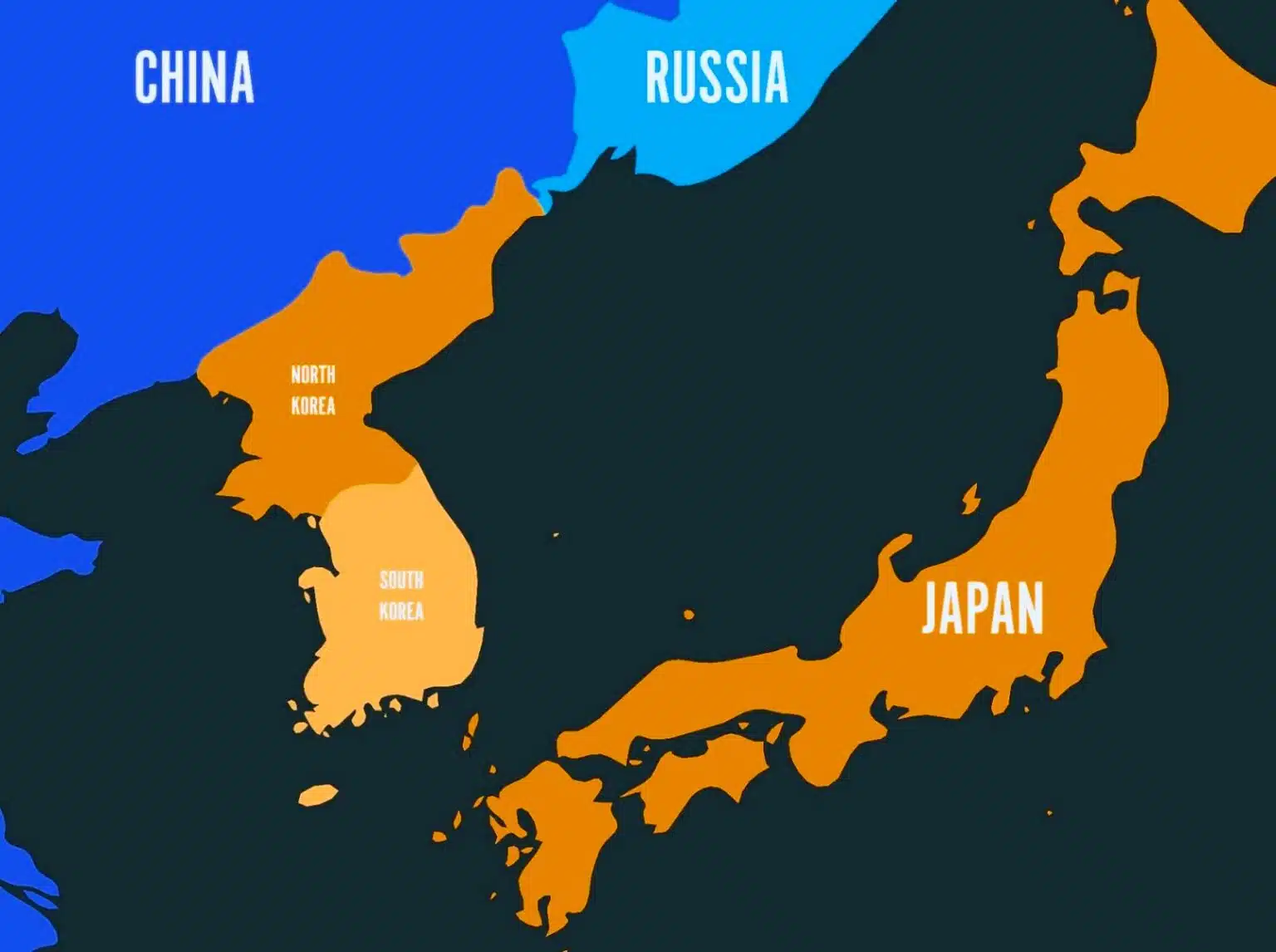The arrival of the US aircraft carrier heightened tensions on the Korean Peninsula. While the missiles, with a speed of Mach 4, crashed in the Sea of Japan and South Korea, Seoul escalated its security paradigm. Continuous tensions amidst the Ukraine-Russia Crisis may prove fatal. South Korea should devise an independent strategy towards North Korea.

Two short-range ballistic missiles were shot over the eastern waters on Sunday by North Korea, indicative of the power demonstration and rise in tensions amidst the Ukraine-Russia Crisis. While stating it as a “righteous reaction” against its archrivals, North Korea continues to step up its efforts to subdue the “threatening” presence, as quoted by the North Korean media.
Pyongyang blamed the presence of US warships in the Ronald Reagan fleet for the missile attack. Though experts believe that the missile attack was less significant in magnitude by impact with respect to previous ones, a future attack is foreseen by a nuclear test or the launch of an intercontinental ballistic missile, which will be of greater magnitude.
Previous tests by North Korea in 2017 have been recorded on the Richter Scale, causing an earthquake of magnitude 6.3. In the first four weeks of the year 2022, it tested seven missiles, including a hypersonic glide vehicle, an intermediate-range ballistic missile, and various cruise missiles. Although the military might be the superficial facet of the tense situations and continuous tests.
The recent appointment of new Prime Minister Han Duck-soo of South Korea and the presence of conservatives in the highest office of power reflect upon North Korea’s tendency to test the reactions of the newly formed government. This test of the rival country’s power and politics is not a novel concept in geopolitics. The Balance of Power dictates that whenever power and ideology switch due to an election in a rival country, there is a change in its foreign policy and national agenda. These reasons are probably functional on the sidelines, though their real motivations specifically lie in the association of America with South Korea.
The trilateral exercises in the Indo-Pacific, ignoring the security demands of North Korea, make the region more vulnerable. Such vulnerability can result in a war with endless consequences and destruction. The Ukraine-Russia crisis has presented the world with the destructive impact of war on both countries, tremendously impacting economies worldwide. A successive recession is faced due to the failure of the machinery of two countries, and the intervention of a third country in between two neighbouring ones is more fatal than having notorious neighbours like China and North Korea. While neighbouring countries withhold extreme tensions, a probable admission into NATO(an American-dominated organization) or the intervention of a third country will transform the tensions into instant wars.
RECENT DEVELOPMENTS
The world witnessed the visit of American House Speaker Nancy Pelosi to Taiwan, provoking China to assert its One-China Policy. Or the Ronald Reagan fleet conducting military exercises with Japan and South Korea in the East Sea, sparking missile attacks by North Korea. Or the US providing Pakistan with F16 planes in exchange for free access to its airspace to kill Al Qaeda leader Ayman al-Zawahiri, infuriating India due to security concerns.
History teaches us that the United States has always played both active as well as destructive roles in matters of world peace. While the third world countries always faced the pressure of joining one power bloc, like the US or Russia, from the days of World War II, in today’s multi-polarized world with other major powers emerging, the world needs to stick to nuclear deterrence with more vigor. Power bloc politics may have worked in the past for smaller countries due to nuclear weapons’ being available only to the permanent five (China, USA, Russia, France, and Britain), but emerging countries must now make a responsible effort in deterring war situations.
Now, the imperative is for South Korea to take a more neutral stance. While Seoul reached out to the Chinese Foreign Ministry for a peaceful intervention, China asserted its right to play a positive role in promoting a political settlement of the issues instead of a military one. North and South Korea are set to hold denuclearization talks, with the US needing to de-escalate its bid for Indo-Pacific dominance.












